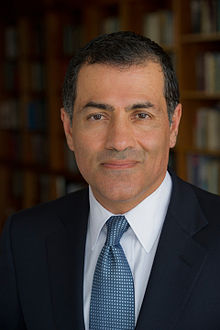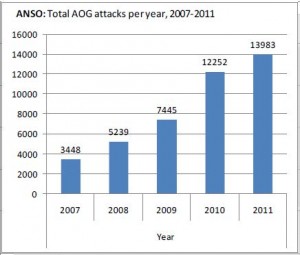For Nobel Peace Prize Winner Obama, Diplomacy Still Afterthought in Afghanistan
The central point argued in Vali Nasr’s book “The Dispensable Nation” is that for the Obama administration, diplomacy took a back seat to the military as the administration took control of the war in Afghanistan from the Bush administration. In fact, the second part of the book’s title is “American Foreign Policy in Retreat”. As the chief aide to Richard Holbrooke, whom Obama chose as his special envoy to Afghanistan and Pakistan, Nasr puts Holbrooke on quite a pedestal in the book, and others have built a bit of a cottage industry around attacking Nasr’s version of events, but I want to concentrate just on the missed opportunity for diplomacy.
Setting aside the arguing over Holbrooke and Nasr, it is clear that Nasr has identified a fatal flaw in Obama’s handling of Afghanistan. Nasr describes a very early opening for negotiations with the Taliban that was squandered:
Around that time, in fall 2009, Holbrooke and I had a meeting with Egypt’s foreign minister. Egypt’s intelligence chief, General Abu Suleiman (who later became vice president when Mubarak fell), was also in the room. At one point he turned to Holbrooke and said, “The Taliban visited us in Cairo.” Holbrooke said, “Really, who came? Do you remember?” Abu Suleiman reached into his bag, pulled out a piece of paper, held it before his face, and read three names. The last one made us all pause. It was Tayed Agha, a relative the Taliban chief, Mulla Omar, as well as his secretary and spokesman, whom we knew to be actively probing talks with the United States on Taliban’s behalf. We knew Tayed Agha to be a player, but we did not know then that he would become America’s main Taliban interlocutor in first secret and later formal talks that began in 2011 (and were made public in February 2012).
Although Holbrooke jumped at the opportunity and presented the case to the Obama administration, they were dismissive of the idea during the critical time that they were developing and then implementing McChrystal’s vaunted surge of troops in Afghanistan. From the Foreign Policy excerpt of the book:
FROM THE OUTSET, Holbrooke argued for political reconciliation as the path out of Afghanistan. But the military thought talk of reconciliation undermined America’s commitment to fully resourced COIN. On his last trip to Afghanistan, in October 2010, Holbrooke pulled aside Petraeus, who by then had replaced McChrystal as commander in Afghanistan, and said, “David, I want to talk to you about reconciliation.” “That’s a 15-second conversation,” Petraeus replied. “No, not now.”
The commanders’ standard response was that they needed two more fighting seasons to soften up the Taliban. They were hoping to change the president’s mind on his July deadline and after that convince him to accept a “slow and shallow” (long and gradual) departure schedule. Their line was that we should fight first and talk later. Holbrooke thought we could talk and fight. Reconciliation should be the ultimate goal, and fighting the means to facilitate it.
The Obama administration did its utmost to undermine Holbrooke’s efforts on the diplomatic front during this time: Read more →


